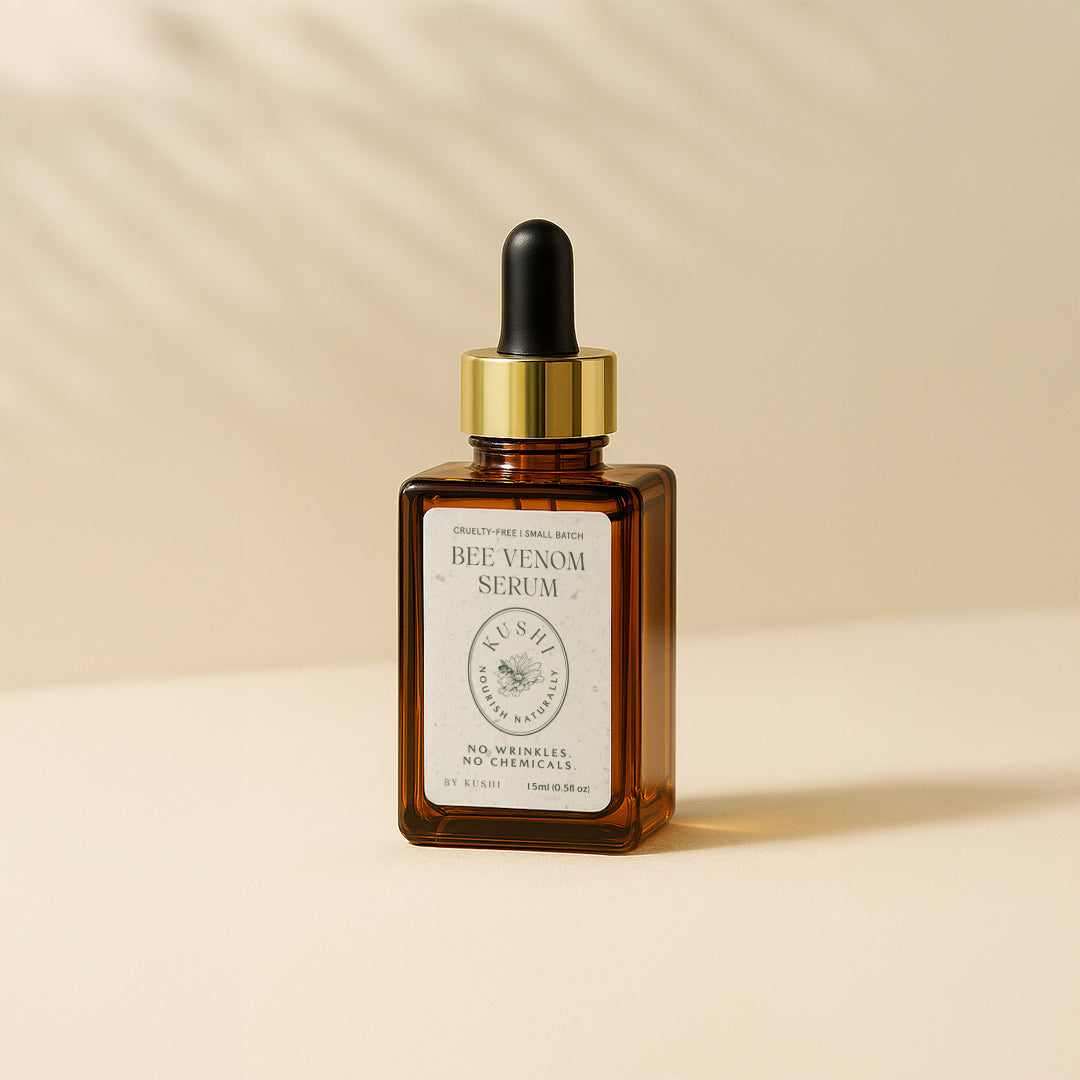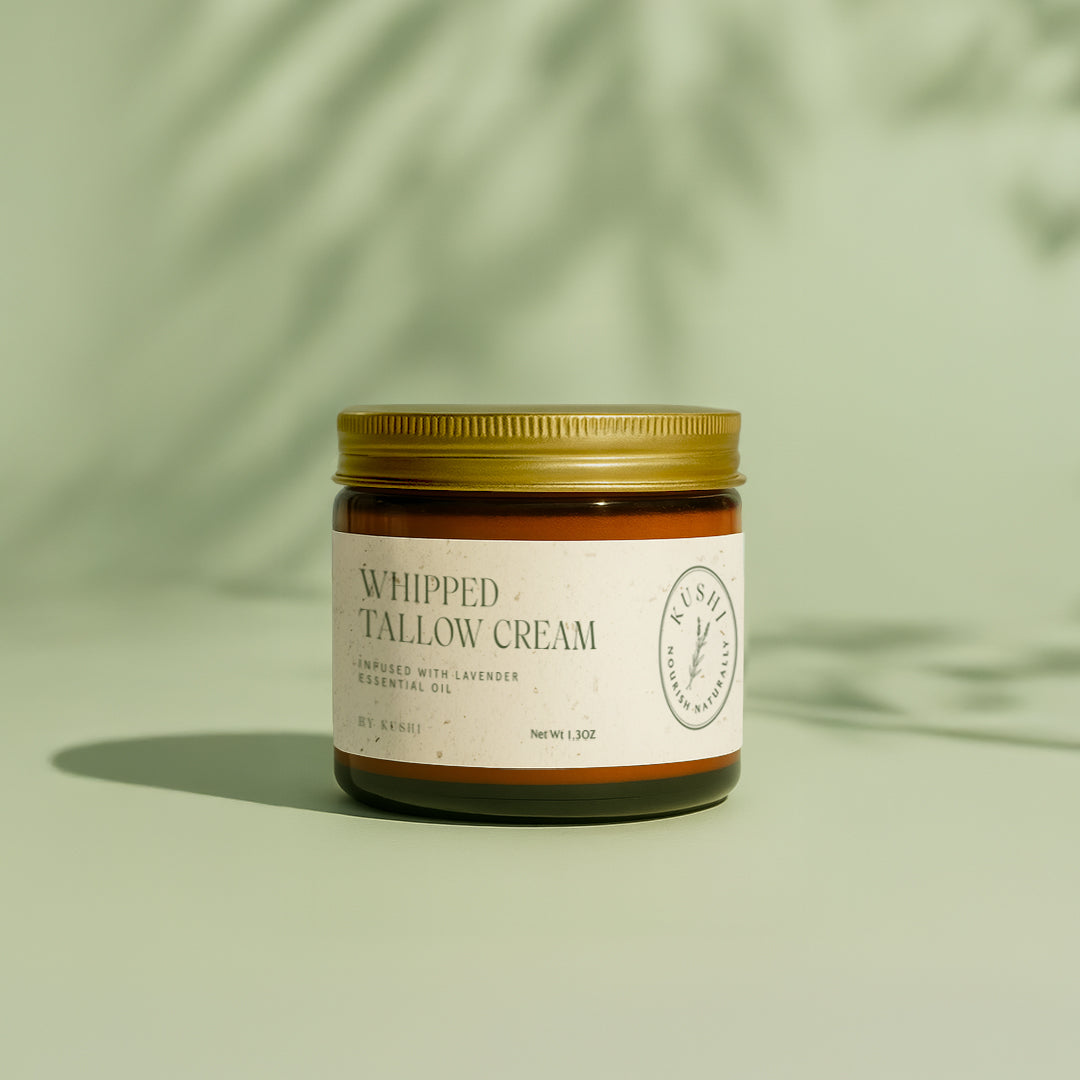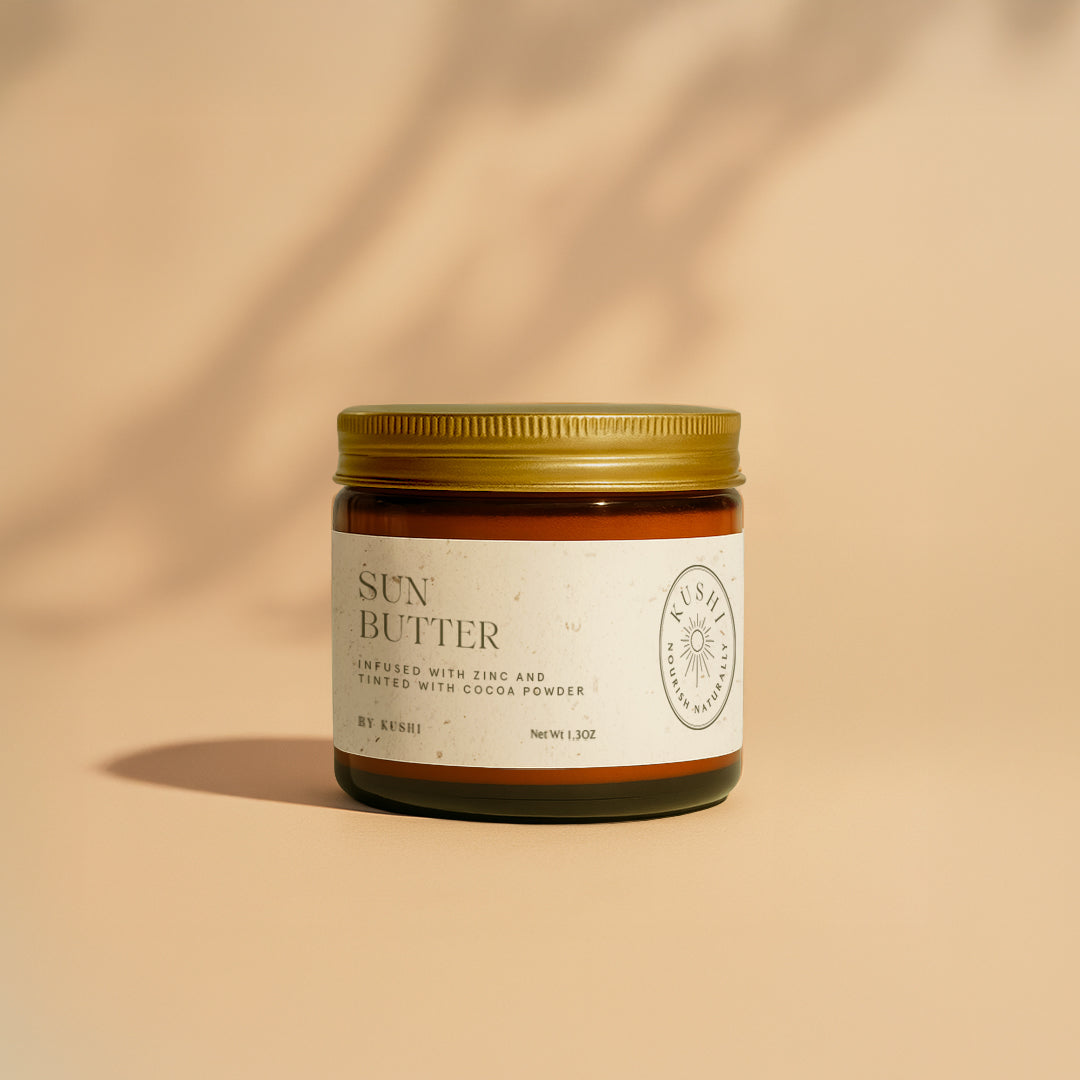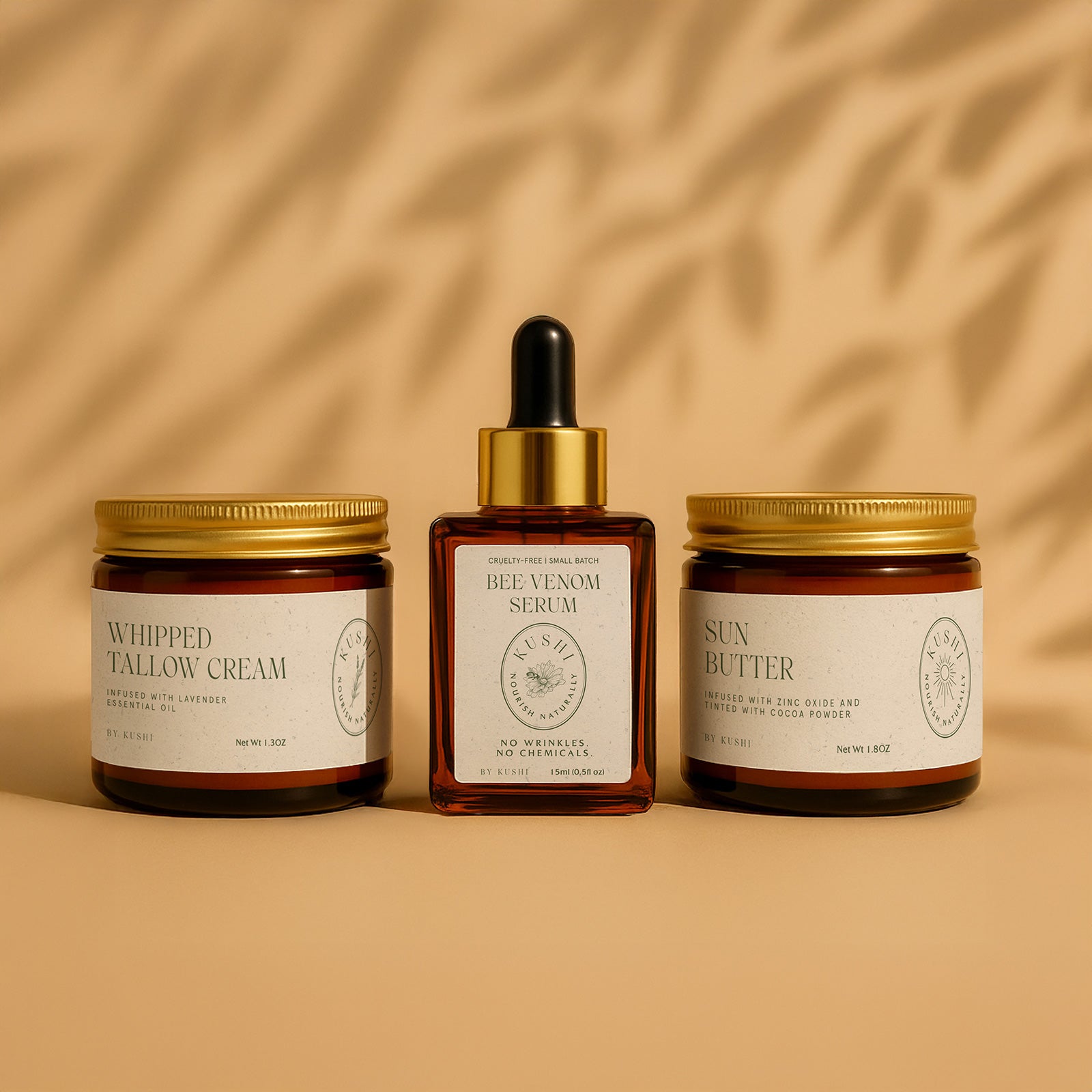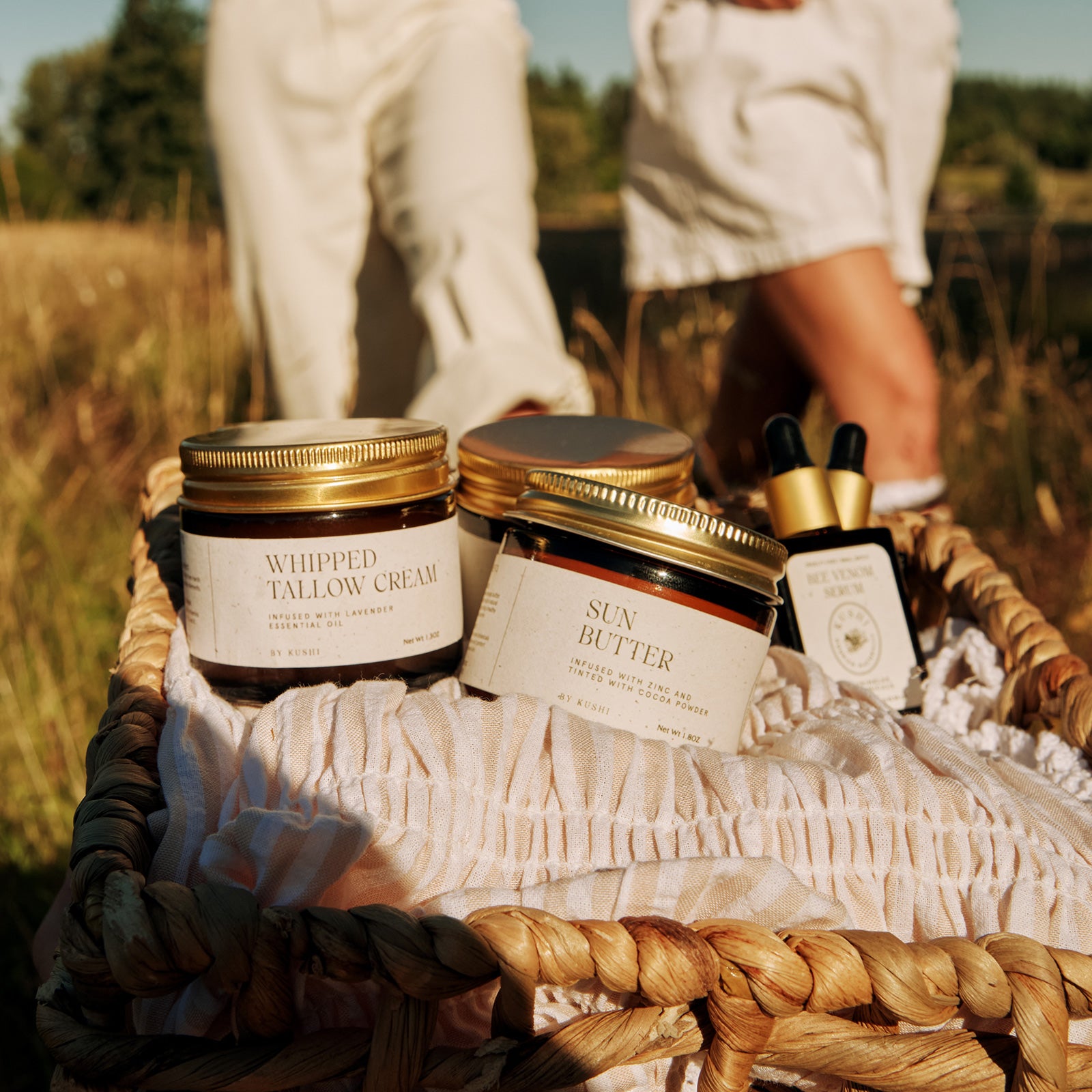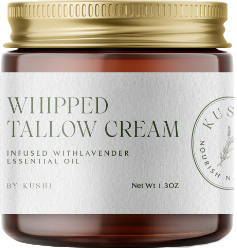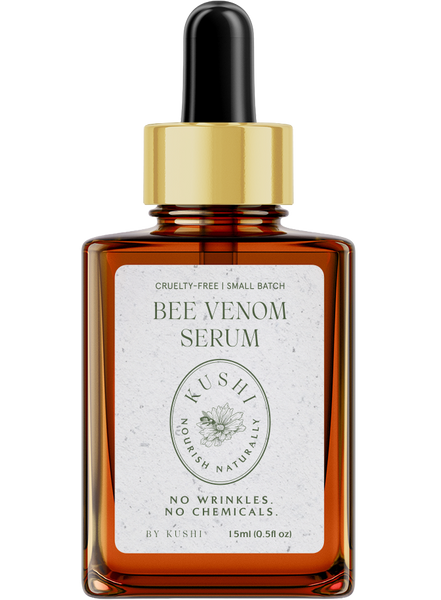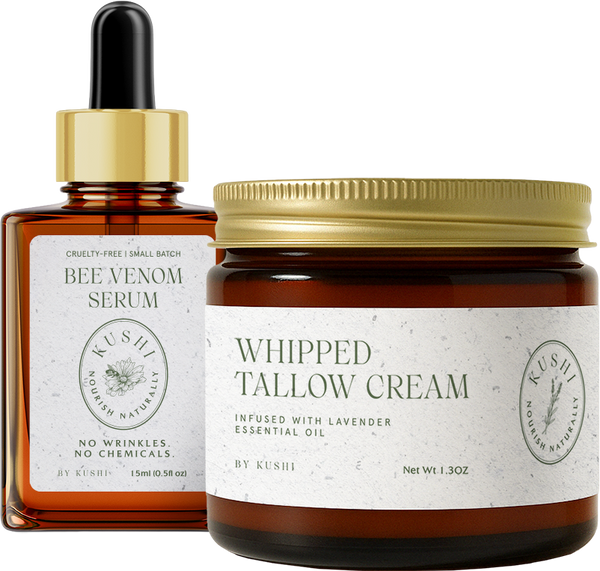Key Takeaways:
-
Understanding The Causes Of Winter Dryness: Recognize the root causes of winter dry skin, such as low humidity and environmental stress, to effectively address the issue.
-
Building A Gentle Skincare Routine: Embrace tailored skincare routines featuring gentle cleansers, rich moisturizers, and lifestyle adjustments to restore balance and comfort.
-
Choosing The Right Moisturizer For Lasting Care: Opt for effective moisturizers that focus on simple, natural ingredients to nourish and protect the skin barrier without irritating it.
At Kushi, we embrace the beauty of simplicity. Every product is a reflection of our belief that proper care begins with honesty. We craft skincare that honors nature’s wisdom and your skin’s natural balance. Our commitment to clean, effective formulas remains unwavering, as confidence stems from trust, trust in what touches your skin and what stands behind it. That’s the essence of who we are.
The search for the best natural face moisturizer often leads to the same question: what does skin actually need? The answer is balance, hydration, and ingredients that work in harmony with nature. Our well-made, natural moisturizer helps restore the skin. It feels effortless, light, and grounding all at once because the best care for your skin is the kind that supports its own quiet strength.
In this blog, we will explore the common causes of dry skin associated with cold weather, the role that temperature and humidity play in disrupting your skin’s barrier, and how the right ingredients and moisturizers can help restore balance, hydration, and comfort throughout the colder months.
Why Winter Air Steals Your Skin’s Moisture
When the temperature drops, the air around us changes in ways that quietly impact the skin’s ability to stay hydrated. Understanding these changes helps create a routine that protects and restores balance. Many people wonder, Can you get dry skin from cold weather, and the answer lies in how temperature and humidity affect the skin’s barrier. When cold air lacks moisture, water evaporates faster from the surface, leading to tightness, flakiness, and discomfort.
How Cold Temperatures Affect Skin Hydration
Cold air carries little moisture, and as humidity levels fall, water begins to evaporate quickly from the skin’s surface. This process, known as transepidermal water loss, causes the skin to feel tight, rough, and dry. Indoor heating compounds the problem by drawing even more moisture from the air, creating a double impact on hydration.
The Impact Of Wind And Weather Exposure
Winter winds act like a natural exfoliant, harsh and constant, removing the oils that maintain your skin’s protective barrier. When these oils are stripped away, tiny cracks form on the surface, allowing moisture to escape while increasing sensitivity to irritants. This can trigger flare-ups of eczema, rosacea, or other forms of redness and discomfort.
How Everyday Habits Worsen Seasonal Dryness
Long, hot showers and harsh cleansers can often feel comforting in cold weather, but they dissolve the protective lipids that the skin depends on. The momentary warmth comes at a cost, leaving the surface more vulnerable to dryness and irritation. Choosing gentle cleansers and lukewarm water can help preserve the natural balance your skin needs.
Why Understanding The Skin Barrier Matters
The skin barrier, known as the stratum corneum, is your body’s frontline defense. It’s made of natural oils, proteins, and water that work together to lock in hydration and block irritants. When environmental stress weakens this barrier, the skin struggles to stay resilient. Supporting it with nutrient-rich, moisturizing care keeps it strong through the coldest months.
Building Awareness For Healthier Winter Skin
Dryness during winter is not a flaw; it’s a natural response to the environment. Recognizing what causes it allows you to choose better care with intention. By selecting gentle, nourishing products and maintaining consistent hydration, your skin can remain balanced, calm, and healthy through every season.
Common Mistakes That Intensify Cold-Weather Dryness
Even with good intentions, many winter habits can subtly disrupt the skin’s natural balance. Recognizing and correcting these behaviors helps restore moisture and strengthen the barrier that keeps skin calm and resilient through the cold months.
Over-washing, over-exfoliating, or skipping moisturizers can all worsen seasonal dryness. For those seeking how to get rid of dry skin from cold weather, focus on repairing your barrier through hydration, protection, and balanced cleansing.
-
Over-Washing With Hot Water: Hot showers and harsh soaps strip the skin of its natural oils, which protect the skin barrier. Using gentle, fragrance-free cleansers and lukewarm water prevents essential lipids from washing away and supports long-term hydration.
-
Under-Moisturizing The Skin: Skipping or using lightweight lotions during winter leaves skin exposed to dryness. A rich, occlusive moisturizer applied right after cleansing, while the skin is still damp, locks in water and provides lasting nourishment.
-
Relying Too Much On Indoor Heating: Central heating systems circulate dry air that steadily pulls moisture from the skin. Running a humidifier or placing bowls of water near heat sources helps replenish ambient moisture and maintain barrier function.
-
Exfoliating Too Often: Over-exfoliating during colder months can disrupt the skin barrier and increase sensitivity. Limiting exfoliation to once a week with mild, non-abrasive formulas helps remove buildup without depleting moisture or causing irritation.
-
Neglecting Sun Protection: UV exposure continues even in cloudy or snowy weather, damaging the skin barrier and accelerating aging. A daily mineral-based sunscreen safeguards against these effects while preserving overall skin health.
Keep your skin calm and nourished through the cold with Kushi. Our formulas bring comfort to dry skin from cold weather, restoring softness and balance when the air turns harsh. Choose care that works with nature, not against it. Let your skin stay hydrated, resilient, and radiant no matter how low the temperature drops.
The Role Of Humectants, Emollients, And Occlusives
Cold-weather dryness begins with how the skin manages hydration and protects itself from moisture loss. Understanding how humectants, emollients, and occlusives work together helps inform smarter choices for achieving lasting skin comfort and balance.
How Humectants Draw In Moisture
Humectants act as water-attracting agents, pulling hydration from the air or deeper skin layers toward the surface. Ingredients like hyaluronic acid, glycerin, and honey help maintain smoothness and elasticity. However, in dry climates, they should be paired with heavier components that keep this moisture from escaping. This combination prevents that tight, dehydrated feeling that often accompanies winter weather.
The Function Of Emollients In Smoothing The Skin
Emollients repair and soften by filling in microscopic cracks on the skin’s surface. Natural options, such as plant oils, shea butter, squalane, and ceramides, strengthen the barrier while improving texture. They help relieve flakiness, roughness, and dullness caused by cold air. Emollients also provide comfort to sensitive or easily irritated skin, offering gentle care that helps restore the skin's barrier.
How Occlusives Protect Against Moisture Loss
Occlusives act as a seal, preventing moisture from evaporating. Ingredients such as beeswax, lanolin, and tallow form a breathable shield that locks hydration in while protecting against harsh environments. These protective agents are particularly valuable during dry winter months when humidity is low and heating systems draw moisture out of the air.
Creating Balance Between All Three
Healthy winter skin depends on balance: humectants hydrate, emollients repair, and occlusives protect. Together, they strengthen the skin’s barrier and create a lasting sense of comfort. Relying on products that incorporate this natural synergy allows skin to stay hydrated, calm, and resilient without the need for complicated routines.
Why Simplicity Supports Lasting Hydration
Combining these elements thoughtfully reflects Kushi’s philosophy of simplicity and intentional care. When ingredients serve a clear purpose, from seed to skin, they work with the body’s natural rhythms rather than against them. This approach ensures deep, lasting hydration while maintaining purity and balance, even in the harshest cold conditions.
Choosing The Right Moisturizer For Cold Weather Comfort
When temperatures fall, maintaining skin comfort requires more than surface hydration. Understanding the right texture, ingredient balance, and formulation quality helps preserve the skin barrier and restore its natural resilience during the colder months.
Why Rich, Nourishing Textures Work Best
Cold weather pulls essential lipids from the skin, weakening its ability to retain moisture. Creams rich in emollients and occlusives, such as tallow, shea butter, or natural oils, create a replenishing layer that restores softness and provides protection. These ingredients strengthen the barrier by mimicking the skin’s natural composition, ensuring hydration lasts longer and feels more balanced.
The Importance Of Reading Ingredient Labels Carefully
When skin is vulnerable, every ingredient matters. Look for short, transparent ingredient lists that prioritize nourishment over fillers. Avoid parabens, synthetic fragrances, and unnecessary additives that can irritate. Instead, opt for formulations with clean, bioavailable ingredients that work in harmony with the skin, especially for individuals managing eczema, rosacea, or heightened sensitivity.
The Role Of Texture In Retaining Moisture
The texture of a moisturizer affects how effectively it seals in hydration. Whipped or balm-like formulations provide a comforting cushion that shields against environmental stressors. They absorb well without leaving a heavy residue, offering deep comfort and long-lasting moisture for dry, reactive, or weather-stressed skin.
Multi-Functional Care For Winter Resilience
A well-formulated moisturizer can do more than hydrate; it can soothe redness, soften rough patches, and support cell renewal. Choosing one product that addresses multiple winter concerns simplifies care while promoting natural skin health. Look for nutrient-rich creams that enhance comfort while promoting balanced, steady repair.
Choosing Formulas That Reflect Your Values
The best moisturizer cares for both your skin and your conscience. Products made with sustainably sourced, cruelty-free ingredients and recyclable packaging align with mindful self-care. Selecting brands that value transparency, purity, and respect for nature ensures your skincare choices support long-term wellness, from seed to skin, because our skin deserves better.
When To Seek Professional Help For Severe Dryness
Most cases of winter dryness respond well to consistent moisturizing and gentle care, but when symptoms persist or worsen, it may signal an underlying concern that requires professional evaluation.
Recognizing When Dryness Becomes A Concern
Persistent itching, cracking, bleeding, or visible inflammation that does not improve with regular moisturizing should not be ignored. These signs indicate the skin barrier is struggling to repair itself and may need targeted treatment.
Understanding When Symptoms Indicate A Deeper Issue
If dryness is accompanied by redness, swelling, or open sores, it may indicate conditions such as eczema, dermatitis, or a bacterial infection. Burning, thickened patches, or scaling that lasts for weeks are also signs that the skin may need medical attention.
The Importance Of Seeking Expert Guidance
When at-home care no longer brings relief, consulting a dermatologist helps identify the cause and provides tailored solutions. Professional advice can uncover triggers such as allergies, hormonal shifts, or nutrient deficiencies, and rule out conditions like psoriasis or fungal infections.
Paying Extra Attention To Children And Infants
Children’s skin loses moisture more quickly than adults’, making them especially vulnerable to severe dryness. Early medical evaluation helps prevent discomfort and protects their delicate skin from worsening irritation or infection.
Recognizing Systemic Connections
If dryness is accompanied by symptoms such as joint pain, fatigue, or changes in vision, it may be linked to broader health conditions, including thyroid imbalance or autoimmune disorders. Seeking timely medical input helps address both skin and internal health.
Listening To What Your Skin Is Telling You
Persistent dryness is your skin’s way of asking for attention. Early intervention restores comfort, supports barrier repair, and ensures your skin stays firm and calm through the changing seasons.
Final Thoughts
Navigating dry skin from cold weather can feel overwhelming, but it doesn’t have to be complicated. At Kushi, we believe that proper care comes from nurturing your skin with pure, intentional ingredients and trusted rituals. When you choose products rooted in tradition and crafted for modern needs, every step you take is an act of gentle self-respect.
Adapting your routine for winter is about providing your skin with the essential building blocks it naturally craves. By reaching for thoughtfully formulated moisturizers like our Whipped Tallow Cream, you honor your skin's unique rhythm, fortifying its barrier and feeding it vital nourishment. Incorporating barriers and hydration, never overloaded with harsh additives or fragrances, restores the skin’s innate harmony without compromise.
Trust in the power of minimal, effective care and ethical sourcing, because comfort, well-being, and pure results should be universal, whatever the weather.
Read also:
Frequently Asked Questions About Dry Skin From Cold Weather
What causes dry skin during cold weather?
Dry skin from cold weather occurs when humidity and temperature drop, causing moisture to be pulled from the skin. Wind exposure worsens dryness by stripping away natural oils that protect hydration.
Why does cold air make skin drier?
Cold air carries little moisture, causing the skin to lose water faster. The low humidity and temperature weaken the skin barrier, leaving it tight, flaky, and uncomfortable.
Are there specific symptoms of winter dry skin?
Winter dryness often appears as tightness, flaking, redness, or itching. Sensitive skin may feel rough or cracked, and existing conditions like eczema can become more reactive.
Can indoor heating worsen dry skin?
Yes, indoor heating reduces air humidity, drawing moisture from the skin. The combination of dry indoor air and cold weather can lead to more severe dehydration and irritation.
How does wind exposure affect skin moisture?
Wind exposure accelerates water loss by removing the skin’s protective oils. This leaves the surface vulnerable, dehydrated, and more prone to redness, irritation, and discomfort.
What moisturizers work best for winter dryness?
Rich, emollient moisturizers work best. Kushi’s Whipped Tallow Cream uses grass-fed tallow packed with vitamins and fatty acids to nourish, restore balance, and protect sensitive winter skin.
